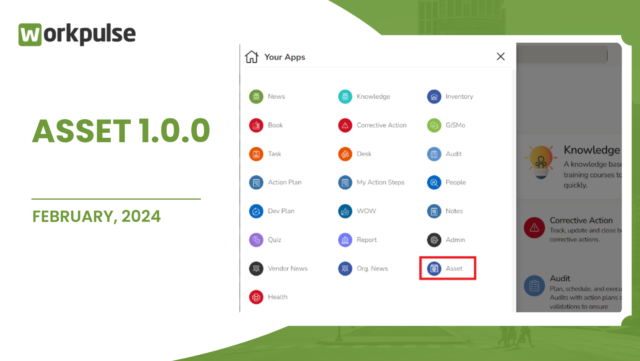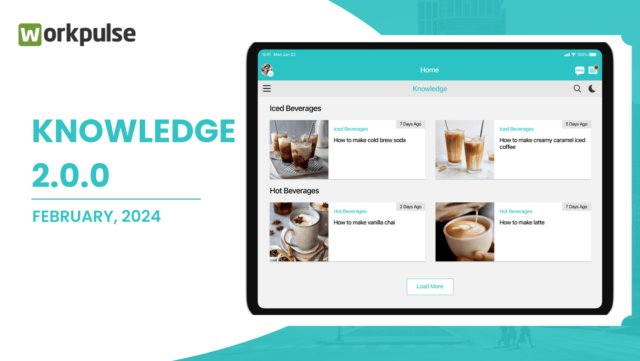Performance assessments can be very useful in employee retention. Yes, its true and it has been used by several QSRs to understand the competencies of their employees. One of the most significant reasons for employee turnover is lack of efficiency in performing tasks. This could be due to low competencies for the required work profile or an employee may not be placed in the correct profile as per his or her abilities. The best way to evaluate your employees’ core competencies and to help them perform better is to conduct regular performance assessments.
How often should performance assessments be conducted?
Most employees believe that performance assessments are only conducted at the time of appraisal. This is incorrect. Restaurants should conduct assessments regularly not only to identify skill gap, but to also provide training opportunities to the employees to make them competent for the roles they are assigned to. For example, if you have assigned an employee to prepare ice coffee and the outcome is not as expected, then there is a high risk of the employee resigning or even creating distress in the team. With performance evaluations, managers can identify the training needs and interest of the employee and provide the necessary coaching for acquiring the skills.
Evaluations do not have to be a daily or weekly affair. Depending on the team strength and operational requirements, restaurants can plan fortnightly, monthly or quarterly assessments. However, in order to make the evaluations really effective, restaurants need to implement a performance management system that will allow them to track assessments, provide development plans, monitor training, and ensure proper communication throughout the process. By using spreadsheets and paper forms, you are making the process tedious, time consuming, and difficult to track in real time. Remember, every second you lose in following a paper trail, your employees could be exploring other opportunities.
How to leverage performance assessments for employee retention in restaurants?
While it may seem unconventional, but performance assessments have actually helped restaurants, especially QSRs, retain their employees. Workpulse recently launched its Performance Management and Training System which was implemented in over 100 locations in the first month. Based on the feedback received from the QSRs, we have identified three ways in which performance assessments not only helps to retain employees, but also enables them to perform better.
-
Identify skill gaps
The biggest benefit of regular performance assessments is the identification of skill gaps in employees. More than simply identifying the gaps, it is important to identify them on time before employees find themselves getting demotivated due to underperformance. By preparing a simple questionnaire, managers can evaluate the core competencies of their employees and identify the areas of improvement.
The timely identification of skill gaps will give managers the insights into the skills that their employees need to develop. Development plans can be assigned and tracked to ensure the employees have theoretical as well as practical knowledge of their work.
-
Get visibility into skill adoption
Training is often provided only once a year or even less in most restaurants. Managers need to understand that training is a regular activity and should be done more often to assess and prepare their employees to meet the expectations kept from them. It is recommended that a digital performance management solution be used for creating, assigning, and tracking development plans.
The impact of the training and development programs will be seen immediately on the productivity as well as attitude of the employees. Once they find themselves better equipped to deliver the expected results, they will be less likely to consider resigning from their job.
-
Prepare employees for larger roles
When an employee joins an organization, he or she always has plans for growing into larger roles and moving up the organization’s hierarchy. This is one of the biggest incentives that keeps employees focused on their goals and pushes them to perform at their best. But if they are unaware of the competencies required for the higher roles or if they find no opportunity to develop the competencies, they might consider leaving the organization in search for better roles.
Performance evaluations provide managers a direct insight into the capabilities of employees and by analyzing their traits and strengths, they can be groomed for becoming eligible for larger roles. For example, if a store manager has excellent leadership skills but has been doing the same tasks for a long time, he or she could burn out from the redundant nature of work. By providing an opportunity to become eligible for an area manager profile, you can ensure that the employee will want to be associated with the organization longer.
Help your team perform better with technology
Performance assessments alone will not help you retain your employees. It is an important aspect of employee retention but in order to enable your team to perform better, you have to give them the right tools to make them more efficient at their jobs. The majority of today’s frontline workforce comprises millennials who love using technology to make their life easier and convenient. They will never be able to perform at their best by using old ways such as paper forms, spreadsheets, and manual consolidation of data.
Your restaurant needs to embrace technology and implement an integrated operations management platform to allow your team to perform daily tasks easily without the hassles of managing bulky logbooks, paper forms, and make entries. A digital solution helps to automate tasks, provide real time tracking, generates custom reports, and with the integration of sensors, all recordings can be done accurately directly to the software without manual intervention.
Get a consultation from our consultants to know how our performance management system, and our restaurant operating system can help your restaurant retain employees better.




